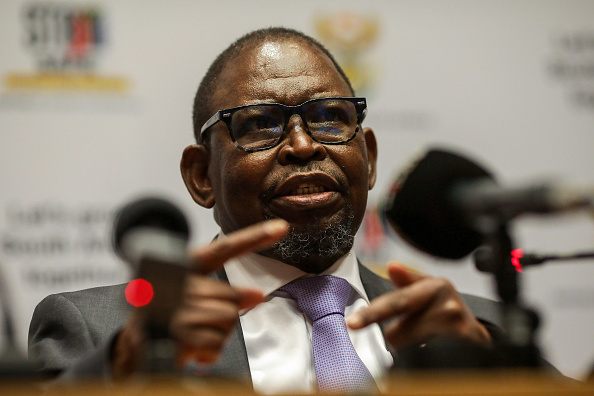Cape Town – South Africa’s economic recovery – encumbered by the pandemic, riots, graft and high unemployment – will be difficult, the finance minister of the continent’s most industrialised economy warned on Wednesday.
Economic growth is projected to be 2.1% this year, dropping to an average of 1.8% over the next three years, Enoch Godongwana said as he tabled the government’s annual budget statement.
“Our economic recovery has been uneven and risks remain high,” he said. “We must proceed with caution.”
ALSO READ | EFF, Unions ‘to stage picket’ ahead of Finance Minister Enoch Godongwana’s budget speech
Restrictions imposed last year and in 2020 to control the spread of Covid-19 brought most economic activity to a standstill and plunged millions of people into unemployment.
With more than 3.6 million Covid cases and nearly 99 000 fatalities, South Africa is the continent’s hardest-hit country.
Godongwana said his budget was aimed at striking “a critical balance between saving lives and livelihoods, while supporting inclusive growth”.
South Africa was also rocked by riots in July last year which wiped more than $3 billion off the economy’s books after businesses were looted in the two most populous provinces of Gauteng and KwaZulu-Natal.
Inequality
The unrest, sparked by the jailing of ex-president Jacob Zuma for refusing to appear before graft investigators, threw millions more people out of work.
Unemployment rates range from 35% of the general population to 65% among young people.
Analysts say unemployment is a ticking time bomb in South Africa, which attracts many economic migrants from other African countries.
The country has in recent weeks experienced a wave of protests against the employment of foreign migrants in low-skilled and menial positions.
ALSO READ: Finance Minister Godongwana concerned over fuel price hikes, calls for reforms
Nearly half of the population of 59 million in one of the world’s most unequal countries are now receiving monthly payouts due to poverty and joblessness.
“While tackling inequality is necessary, it will become increasingly challenging considering that South Africa already spends 3.3 percent of its GDP on social expenditure,” said Hannes van den Berg, an analyst at financial advisory group Consult.
He also cautioned against creating dependency on social grants rather than creating employment.
The government will set aside some 76 billion rand ($5 billion) for job creation programmes in the medium term.
Government debt is forecast to climb to 5.4 trillion rand in the medium term from the current level of 4.3 trillion rand, Godongwana said, calling the debt burden “a matter of serious concern”.
ALSO READ: World Bank approves $750m loan to bolster SA’s Covid-19 recovery efforts
The cost of servicing the debt annually is more than the budget allocated to such key ministries as health and police.
Godongwana promised to stabilise debt and narrow the consolidated budget deficit from 5.7% of GDP to 4.2% of GDP by the year 2025.
Massive state corruption and cronyism under Zuma, laid bare in a series of reports since January, have played havoc with growth forecasts.
“Corruption is a major blight on our country,” said Godongwana. “It has lowered our economic growth potential, made us fiscally more vulnerable, and severely weakened the capability of the state.”
Follow African Insider on Facebook, Twitter, and Instagram
Picture: Getty Images
Source: AFP
For more African news, visit Africaninsider.com


